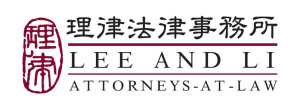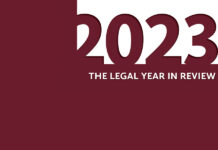Examining developments in cryptocurrency law around the region is like taking a litmus test to measure the flexibilty and depth of competency of these legal systems. Staying up to speed is crucial
Navigation: 2019
Philippines | South Korea | Taiwan | Thailand
Navigation: 2018
China | Philippines | South Korea | Taiwan | U.A.E
PHILIPPINES
The International Monetary Fund’s (IMF) World Economic Outlook Report has projected that global economic growth will slow down, from 3.6% in 2018 to 3.3% in 2019. However, the Philippines has been projected by both the World Bank and the Asian Development Bank (ADB) to grow at 6.4% in 2019 (down from an earlier projection of 6.7%, released in 2018).
The ADB also reports that growth is attributed to strengthening domestic investment and consumption, which will more than offset weakening external demand. Private consumption is lifted due to a low unemployment rate, growth in formal sector employment, a continued rise in remittances, and lower inflation.

Senior Partner
Cruz Marcelo &
Tenefrancia in Manila
Tel: +632 810 5858
Email: dr.rivera@cruzmarcelo.com
Public investment will drive domestic investment with the implementation of major public infrastructure projects such as bridges, expressways, ports and railways. Private investment is also seen to support growth in domestic investment with the continued increase in imports of capital goods and credit to businesses, as well as the accelerating momentum in private construction, which is sustained by continuing strong demand for office and retail space, and for housing.
With a relatively robust economic growth, growth in the cryptocurrency business in the Philippines has also expanded. At the time of writing, there are already 41 licensed cryptocurrency businesses in the country, 31 of which have been given Financial Technology Solutions and Offshore Virtual Currency (FTSOVC) Licences by the Cagayan Economic Zone Authority (CEZA), and 10 having been given Certificates of Registration as Virtual Currency (VC) Exchange licences by the Bangko Sentral ng Pilipinas (BSP).
From our cryptocurrency report in 2018, regulatory reforms have been pushed by the BSP as well as the Philippines Securities and Exchange Commission (SEC). Notably, during the recent Fintech Alliance’s Summit 2019 Manila, BSP director Melchor Plabasan stated that amendments to the BSP’s circular No. 944 (VC Exchange Rules) are forthcoming.

Senior associate
Cruz Marcelo & Tenefrancia in Manila
Tel: +632 810 5858
Email: fd.miranda@cruzmarcelo.com
During the same event, SEC commissioner Ephyro Luis Amatong also said that the SEC’s Rules on Initial Coin Offerings and Digital Asset and Token Offerings would be released by the second quarter of 2019.
These rules are welcome developments in cryptocurrency regulation, which everyone in the industry is keenly waiting for. At the time of writing, these rules have yet to be released by the BSP and SEC.
Cagayan Economic Zone Authority Rules on Digital Asset and Token Offerings. Apart from the announcements by the SEC and BSP of impending regulatory issuances, the only other significant regulatory-related development in the Philippines is the adoption by CEZA of rules to govern Digital Asset and Token Offerings by FTSOVC Businesses.
On 12 December 2018, the CEZA approved its Rules on Digital Asset and Token Offerings (DATO rules), which supplements the Cagayan Special Economic Zone and Freeport (CSEZFP) Financial Technology Solutions and Offshore Virtual Currency Business Rules and Regulations of 2018 (CEZA VC rules).
The DATO rules seek to regulate entities intending to offer digital assets to the public (issuers), as well as any digital asset agent, expert or relevant person. Under the DATO rules, issuers are those licensed to do business in CSEZFP, which issue or propose to issue digital assets shall not be sold or offered for sale or distribution within the Philippines.
Issuers shall ensure that they comply with the laws and regulations applicable to the offer of digital assets to persons in any jurisdiction where regulations govern the offer of digital assets.
The DATO rules define digital assets as those that are uniquely identifiable electronic representations of value, property or chattel, the conferral, storage and transfer of which is recorded electronically, including by transmission of electronic information or adjustment of an electronic record, and which is any or a combination of virtual currency, asset token, or utility token. Digital assets do not include electronic representations of value that are part of an affinity or rewards programme, or those used in online games or gaming platforms.
Under the DATO rules, the CEZA remains the principal regulatory authority, but it shall appoint or designate a self-regulatory organization (SRO) that will assist in the enforcement and implementation of the DATO rules. CEZA designated the Asia Blockchain and Crypto Association (ABACA) as its SRO.
Digital Asset or Token Offering (DATO) means an offer to more than 20 persons during any 12-month period to purchase or acquire digital assets to be issued by an Issuer. DATOs are categorized based on threshold amounts sought to be raised: Tier 1, not exceeding US$5 million; Tier 2, more than US$5 million but not exceeding US$10 million; and Tier 3, more than US$10 million.
However, such threshold amounts shall be subject to quarterly review by the SRO, which, in turn, may recommend to CEZA such adjustments as market conditions or exigencies of effective regulation may require. Each DATO tier shall be subject to different rules and requirements for registration.
Prospective digital asset issuers are required to submit to the CEZA and the SRO a document containing the information necessary to enable investors to make an informed assessment of the prospects of the issuer, the proposed project and the features of the digital asset (offer document). An offer document shall be valid for 12 months after its acceptance by the SRO or, if later, successful completion of its review by CEZA. The DATO rules also require the issuer to publish the offer document in electronic form.
The offer document should include details about the offer, the issuer, the issuer’s principal activities, the issuer’s directors and officers, benefits for third parties and other expenditure, and the issuer’s financial track record.
Asset-backed DATOs are subject to additional rules provided in article VI of the DATO rules. In general, there is a prohibition on making asset-backing representation in relation to one or more digital assets unless the issuer has made, and continues to make, an asset-backing disclosure. Either the CEZA determines that an asset-backing certification is not required, or an asset-backing certification has been made by an asset-backing auditor in respect of each of the digital assets to which the asset-backing representation relates.
Among others, the DATO rules also require issuers to comply with applicable laws and code of conduct to be developed by the SRO, and ensure adoption of mechanisms in respect of security, confidentiality, and disclosure of information. Non-compliance with provisions of the DATO rules subjects erring parties to stiff penalties under article IX.
Based on the foregoing regulatory developments in the Philippines, we foresee that the country will continue to welcome cryptocurrency business. Considering that regulators appear to be receptive and open to communication with industry participants, future regulations will likely continue to foster development of the industry.
Cruz Marcelo & Tenefrancia
9, 10, 11 and 12 Floors, One Orion,
11th Avenue corner University Parkway
Bonifacio Global City, Taguig City 1634
Philippines
www.cruzmarcelo.com
SOUTH KOREA
Will Korea deregulate digital currency? South Korea is one of the world’s most significant markets for blockchain technology companies. At the end of 2018, the Korean Won accounted for 16% of the global Bitcoin/fiat market.
However, a cooling off of trading activity in 2018 and a lack of clearly laid-out regulation are both causes of concern for the nation’s digital currency market.

Lawyer
Kobre & Kim in Seoul
Tel: +82 2 369 1212; +1 212 448 1201
Email: michael.kim@kobrekim.com
Despite its leading role in the digital currency markets, South Korea has not yet implemented formal regulatory and taxation measures for trading these currencies. In reaction to the speculative mania that swept Korea’s cryptocurrency market in 2017, South Korean regulatory authorities maintain their blanket ban on initial coin offerings (ICOs).
An increase in trading activity typically compels regulators to establish clear trading guidelines, but Korea’s digital currency market in 2018 was anything but bullish, with three of the “big four” Bitcoin exchanges all recording losses by the end of the year. With investors looking to take their digital assets to other jurisdictions (including offshore), the market has arguably seen better days. However, there are some indications that Korea’s regulatory authorities are finally preparing clear legal guidelines.
Regardless of recent market woes, with its high-tech economy and receptiveness for new technology, South Korea remains one of the world’s most significant markets for cryptocurrency and blockchain companies. As the market continues to move up and down, the evolution of South Korea’s digital currency regulation will be one to watch, and promises to have a significant impact on global digital currency markets.
A turbulent history

Lawyer
Kobre & Kim in New York
Tel: +1 212 488 1200
Email: daniel.lee@kobrekim.com
The digital currency buzz hit South Korea with gusto. In early 2017, Bitcoin was being traded at nearly the same price globally, but by the end of that year, it was traded at a dramatically higher price in South Korea than in the rest of the world. In a phenomenon dubbed the “kimchi premium”, South Korean digital currency traders were paying nearly US$8,000 more per Bitcoin and simultaneously had access to an arbitrage opportunity with potential gains of between 30% and 50%.
In part because of these significant premiums, the South Korean digital currency market saw rampant misconduct, including mining Ponzi schemes, market manipulation and outright theft. On 20 December 2017, South Korean authorities indicted nearly two dozen people in connection with a digital currency mining Ponzi scheme operating under the name Mining Max, which swindled more than US$250 million from over 18,000 investors. Market manipulation, including spoofing (faking demand by placing large orders not intended to be filled) and wash trading (buying and selling one’s own order), became commonplace in the South Korean digital currency market.
In January 2019, South Korea’s Ministry of Science and ICT, the Korea Internet & Security Agency and the Ministry of Economy and Finance announced that only a third of the nation’s digital currency exchanges passed a government security audit. The regulatory agencies said that 14 out of the 21 exchanges they inspected were “vulnerable to hacking attacks at all times because of poor security”, citing the “insufficient establishment and management of security systems such as basic PC and network security.”
Regulatory response

Lawyer
Kobre & Kim in Washington DC
Tel: +1 202 664 1944
Email: nathan.park@kobrekim.com
Amidst market growth in 2017, lawmakers began preparing a set of bills to provide digital currencies with “legal grounds”. This positive sentiment was quickly overrun by the Financial Services Commission’s (FSC) prohibition of domestic companies and start-ups’ participation in ICOs in September 2017, arguing that digital currency is not a means of exchange, nor a financial product. On 21 March 2018, the ruling Democratic Party proposed legislation that would essentially codify FSC’s guidelines as law.
In the year-and-a-half since the ICO ban, many have been watching in anticipation of the FSC reversing its decision. In late 2018, the Financial Supervisory Service (FSS) conducted a survey of 22 local firms that held ICOs in foreign countries, to which 13 responded. Given that some of the surveyed ICO projects lacked important information for investors – and in some cases provided false information – the FSC in turn determined that ICO investment was a “high risk” activity, and announced in January 2019 that it would not lift the ban.
In the absence of legislative direction, South Korea’s courts have stepped in. In September 2017, the Suwon District Court invalidated the seizure of 216 Bitcoins because it was “not appropriate to confiscate Bitcoins, as they cannot assume an objective standard value”. Following the prosecutor’s appeal in December 2017, the previous court’s ruling was reversed based on the idea that digital currencies have economic value, because “Bitcoin can be changed into money through an exchange”, and it can be used “as a means of payment through merchants”.
On 30 May 2018, South Korea’s top court affirmed the appellate court’s decision, recognizing digital currency as an “asset with measurable value”.
A series of administrative actions has steered the digital currency market toward greater regulation while acknowledging its global prominence. On 30 January 2018, in South Korea’s first concrete administrative measure aimed at digital currency exchanges, FSC vice chairman Kim Yong-beom announced measures to ban anonymous trading on domestic exchanges, in addition to a complete ban on foreigners and minors trading through digital currency accounts.
Under these regulations, digital currency exchanges are required to share users’ transaction data with banks. Also, South Korean exchange users are now required to use bank accounts in their legal name that match the name on their digital currency exchange account. In light of this announcement, many suspected that the FSC would put a total ban on digital currencies, but regulators maintain that this would not be the case.
Regulatory outlook
Despite the flurry of regulatory activity from different South Korean agencies and the judiciary, market participants are still awaiting clear guidance from the National Assembly in the form of a statute that will provide a comprehensive regulatory framework.
The proposed statutes and other pronouncements, however, point in different directions with respect to promoting cryptocurrency trading and blockchain technology. Some of the proposed government actions lean toward promoting both.
On 5 April 2019, a bipartisan group of lawmakers called on the government to ease regulations of both cryptocurrencies and blockchain technology. In May 2018, the South Korean government announced its plans to soften its digital currency regulations in line with its G20 counterparts, signalling an increase in cross-border co-operation and enforcement activities among G20 member nations.
Additionally, regulators have agreed to apply to cryptocurrencies the standards of the Financial Action Task Force (FATF), an inter-governmental body formed to fight money laundering and terrorism financing.
One week before, members of the minority Liberty Korea Party had introduced a bill that would provide comprehensive support for the blockchain industry, including measures such as IP protection and even tax benefits. Under proposed regulatory schemes, digital currency exchanges would be required to register with South Korea’s Financial Intelligence Unit, a sub-organization of the FSC that monitors transactional flows to prevent money laundering or other attempts to evade capital control measures.
The exchanges would also need to comply with “Know Your Customer” and anti-money laundering regulations at levels similar to banks.
On 7 March 2019, the FSC announced that it would focus on passing the amendment to the Act on Reporting and Using Specified Financial Transaction Information, initially proposed on 21 March 2018. The proposed amendment, if passed, would significantly strengthen the banks’ discretion to cease doing business with cryptocurrency exchanges based on concerns over money laundering or terrorism funding.
Market participants have criticized this proposal, claiming it would effectively mean a death sentence for all but the largest exchanges, as mid-sized exchanges would be unable to comply with the rigorous legal requirements.
While the past year has seen both tight regulation and sluggish market growth for Korea’s blockchain and digital currency markets, lawmakers across multiple parties and regulatory entities have acknowledged the need for further deregulation, although the actual implementation of such deregulation is coming in fits and starts.
The upcoming year will be a critical period for South Korea’s regulatory landscape of digital currency, one that is indeed worth close attention.
Kobre & Kim
9/F, Tower B, The-K Twin Towers
50, Jong-ro 1-gil, Jongno-gu
Seoul, 03142
www.kobrekim.com
TAIWAN
At the time of writing this article, there are no blockchain specific laws and regulations in Taiwan. However, with the rise of blockchain applications such as virtual currencies or cryptocurrencies, Taiwan’s regulators have noticed the trend and have issued several press releases to state their positions and policies towards these digital products, as well as educate and warn the general public in Taiwan.
On 30 December 2013, the Central Bank of the Republic of China (Taiwan) and Taiwan’s Financial Supervisory Commission (FSC) jointly issued a press release expressing the government’s position towards bitcoin. According to the 2013 release, the two authorities held the position that bitcoin should not be considered a currency, but a highly speculative digital virtual commodity.

Partner
Lee and Li in Taipei
Tel: + 886 2 2183 2232
Email: abesung@leeandli.com
In 2014, the FSC issued another press release and ordered that local banks must not accept bitcoins (e.g., as a payment means or deposits) or provide any services related to bitcoins, such as exchange bitcoins for fiat currency. On 19 December 2017, the FSC further issued a press release to reiterate the government’s stance as specified in the 2013 and 2014 releases.
Given the above, in particular the authorities’ attitude, bitcoin is not considered legal tender, currency, or a generally accepted medium of exchange under the current regulatory regime in Taiwan. Instead, bitcoin is deemed as a digital virtual commodity. Please note that the 2013 and 2014 releases only indicate the government’s attitude towards bitcoin, instead of any other types of virtual currency or cryptocurrency.
However, the authors tend to think that any other virtual currencies or cryptocurrencies, providing they have the same nature and characteristics as bitcoin, should also be considered as digital virtual commodities.
Token offerings

Associate partner
Lee and Li in Taipei
Tel: + 886 2 2183 2162
Email: eddiehsiung@leeandli.com
It is generally considered that, from a Taiwan law perspective, for virtual currencies or cryptocurrencies other than bitcoin, the core legal issue concerns the securities law – that is, whether an initial coin offering (ICO) or other investment activities regarding virtual currencies or cryptocurrencies would be considered issuing “securities” under Taiwan’s current securities law regime.
In the 2017 release, the FSC also indicated the following views on the rising size of ICOs and other investment activities regarding virtual currencies and cryptocurrencies:
An ICO refers to the offer and sale of virtual commodities such as digital interests, digital assets or digital virtual currencies to investors. Whether the issue of ICO tokens would be deemed securities under Taiwan’s Securities and Exchange Act (SEA) would depend on the relevant facts of each individual case. When an ICO token has the nature of securities, its offering will be deemed a securities offering, and thus subject to the SEA; and
In case any misrepresentations or promises of unreasonably high returns are used by the issuer of virtual currencies or an ICO to attract investors, the issuer would be deemed as committing fraud or illegal fundraising.
The FSC expressed its view that one would need to analyze whether any ICO (or other types of token offering such as private token pre-sale, before the ICO stage) would be considered issuing securities under Taiwan’s SEA. Under current Taiwan law, the offer and sale of securities in Taiwan, whether through public offering or private placement, are regulated activities and should be governed in accordance with the SEA and its related regulations, as well as relevant rulings issued from time to time by the FSC.
The term “securities” is defined broadly, and at the same time vaguely, in Taiwan. According to article 6 of the SEA, securities could mean government bonds, corporate stocks, corporate bonds, and other securities approved by the competent authority, and any stock warrant certificate, certificate of entitlement to new shares, and certificate of payment or document of title representing any of the above securities should be deemed a security.
Additionally, according to a recent Taiwan Supreme Court opinion, a contract or agreement might be considered a security under the SEA if it has monetary value and the nature of investment and transferability. However, the authors think such previous Supreme Court views should be considered to be focusing on traditional types of securities, and the emerging digital assets might not be easily categorized based on the elements discussed by the Supreme Court previously.
Security tokens, proposed regulations
As described above, theoretically speaking, for offer and issue of any tokens with the nature of securities – which are commonly called security tokens, and their offerings commonly called security token offering (STOs) – prior approval from, or registration with, the FSC would be required under the SEA.
However, although it was advised in the 2017 release that any STO should be subject to the SEA, currently the SEA and its related regulations have not set out the relevant rules governing the application for such prior approval or registration. In other words, as at the time of writing this article, no regulatory process is available in Taiwan for prior approval or registration.
Despite this, according to relevant news reports, in response to advocates from the blockchain and cryptocurrency industries, the FSC announced that it is planning to launch a set of new regulations for the issuing of security tokens to fill up the void. For this purpose, the FSC held a public hearing on 12 April 2019, inviting views and opinions from industry experts on the proposed regulations of security tokens. In the public hearing, the following points, among others, were discussed and proposed to be included in the prospective new regulations:
To expressly define security tokens as securities under the SEA;
To set an upper limit on the total amount of an STO programme (STO programmes exceeding the limit may need to be tested in Taiwan’s regulatory sandbox);
To set qualifications of the buyers of security tokens;
To set an upper limit on the amount of security tokens that an investor may purchase and hold;
Taipei Exchange to draft regulations governing the security token offering, including the relevant requirements and conditions such as required documents and information disclosure; and
To allow securities dealers (as registered with the FSC) to serve as a security token trading platform (i.e., the securities dealer should act as a counterparty for all security token trading). The minimum capital for a securities dealer might be lower than that of a conventional security dealer if it only operates the platform for security tokens.
As of now, relevant details of the draft regulations are still under discussion and not yet published; according to relevant news reports, it is expected that such regulations will be announced in June this year.
Anti-money laundering
The latest amended Money Laundry Control Act (AML Act) of Taiwan, which took effect on 7 November 2018, has brought the cryptocurrency platform operators into the anti-money laundering regulatory regime.
However, as of now, how it will be implemented and what requirements will be imposed by the FSC (which is the main regulator of Taiwan AML Act) are not clear in terms of anti-money laundering regulation of cryptocurrency exchanges and platforms.
LEE AND LI ATTORNEYS-AT-LAW
7/F, No 201 Tun Hua N. Road
Taipei, Taiwan 10508, ROC
Tel: +886 2 27153300
Fax: +886 2 25149841
www.leeandli.com
THAILAND
Financial technology (fintech) sounds novel to some people, but in fact it has been in existence since the 1950s, starting with credit cards, then the arrival of the automatic teller machines, or ATMs, in the late 1960s, followed by online banking in the 1980s.
In the past few years, many new start-up companies in Thailand have brought in financial technology innovations, such as electronic payments or e-payments, into the market, which have rapidly replaced cash payments.
Such disruptive technology has created a massive impact on many commercial banks in Thailand, for there has been a huge swing in consumer

Partner
ILCT Advocates & Solicitors in Bangkok
Tel: 66 (0) 2679 6005
Email: Palawib@ilct.co.th
behaviour as people gravitate towards online and mobile platforms. More than 300 branches of the top five Thai commercial banks were shut down in the past four years as the demand for physical branches decreased. Now, all Thai commercial banks have waived all bank transfer fees, and have inevitably been forced to improve their technologies in order to compete with fast-growing e-payment applications.
The Bank of Thailand plays a major role in pushing forward the development of electronic payment systems as part of the National e-payment Master Plan, which aims to promote the use of e-payments in all sectors, for example, the Image Cheque Clearing and Archive System (ICAS) and Bahtnet, which are categorized as highly important payment systems, together with the introduction of PromptPay. The latter is a government transfer service that was first used for the transfer of welfare payments. The Revenue Department has been paying out tax refunds to individuals via PromptPay since 2017, allowing the general public to receive their refunds in a timely manner.
The Payment System Act (2017) governs designated payment services as defined in that act. These are: (1) the provision of credit card, debit card or ATM card services; (2) the provision of electronic money services; (3) the provision of accepting electronic payment for, and on behalf of, others; (4) the provision of electronic money transfer services; and (5) other payment services that may affect payment systems or the public interest. Providers of these businesses are required to obtain a licence from the Minister of Finance or register with the Bank of Thailand.
Other than e-payments, the distributed ledger technology commonly known as blockchain, and digital assets such as cryptocurrencies and digital tokens, inundated Thailand so rapidly that the Securities Exchange of Thailand (SEC) had to issue an alert note on its website to warn investors of the risks in entering into any transaction with unauthorized operators.
Currently, only four digital asset business operators have been licensed by the SEC to operate digital businesses in Thailand, namely: Bitkub Online; Bitcoin Exchange; Satang Corporation; Pro and Coins TH.
Digital asset businesses are governed by the Royal Decree on Digital Assets Business (2018). Pursuant to the decree, “digital asset business operators”, commonly referred to as start-ups, are operators licensed to conduct digital asset businesses.
These exclude commercial banks, which are regulated under the Financial Institutions Business Act (2008), insurance companies that are regulated under the Life Insurance Act (1992) and the Non-life Insurance Act (1992), and securities companies that are regulated under the Securities and Exchange Act (1992). Digital assets, according to the decree, are defined as cryptocurrency and digital tokens.
Digital asset businesses are categorized into: (1) digital asset exchange centres; (2) digital asset brokers; (3) digital asset dealers; and (4) other businesses as announced by the Minister of Finance upon the advice of the SEC.
Those wishing to operate digital asset businesses are required to obtain licences from the SEC prior to commencing their operations. The prerequisites required of the potential digital asset business operators are an established presence in Thailand and possession of a reliable business plan and cyber or IT security systems in accordance with the SEC’s standards and rules. They also need to have qualified systems to conduct know your customer (KYC) investigations, as well as anti-terrorism and anti-money laundering due diligence.
The decree also governs initial coin offerings (ICOs) of newly issued digital tokens. An ICO in Thailand is different from an ICO in other parts of the world in that it can only be done via a qualified ICO portal that has been approved by the SEC, whereas in other countries ICOs can be done straight away. So far, the SEC has only approved one ICO portal out of four or five ICO portal applicants, but the SEC has yet to officially announce its name in public – tentatively, this is to be done by the end of this year.
Other than providing a reliable system approved by the SEC, one of the main duties of the ICO portal is to conduct a due diligence investigation on the ICO issuers and pre-approve the applications and supporting documents, such as a prospectus or white paper, prior to submitting the same to the SEC for approval.
The ICO issuers must indicate in their application forms the type of digital tokens to be issued, indicating the right of a person to either participate in an investment in any project or business (investment token), or to acquire specific goods or services, or the right under an agreement between the issuer and the holder, including any other electronic data units of right as announced by the SEC (utility token).
Previously, the SEC allowed seven cryptocurrencies to be legally used for investing in ICOs and as base trading pairs against other cryptocurrencies, but currently many of them have been removed by the SEC for lack of market liquidity, a well-designed decentralized system and trading pair capability.
Now there are only four approved cryptocurrencies, namely: bitcoin (BTC); ethereum (ETH); ripple (XRP); and stellar (XLM), which can be used in Thailand for the above-mentioned purposes. The list of approved cryptocurrencies may be revised periodically by the SEC, and all investors need to keep themselves apprised of any sudden change in the SEC’s rules and regulations.

ILCT Advocates & Solicitors
18th Floor, Sathorn City Tower
175 South Sathorn Road,
Bangkok 10120 Thailand
Tel: 66 (0) 2679 6005
Fax: 66 (0) 2679 6041
Email: law@ilct.co.th
www.ilct.co.th



























